Tricks to hide files or folders on Windows, Mac OS X and Linux
Hide, hide a folder or file on your computer in part to ensure the security of the information contained in the folder or file that is not found by others. Partly to "clean up" the folder on your computer.
In the article below, Network Administrator will show you how to hide or hide folders or files on Windows, Linux, Mac OS X and MS - DOS.
1. On Windows
Step 1: Change the file settings

To hide or hide any file or folder you must set the option to hide that file or folder in the Folder Options option.
On Windows XP : Open Windows Explorer, click on Tools, then click on Folder Options. On the Folder Options window, click on the View tab, under Advanced Settings, and select Do not show hidden files and folders.
On Windows Vista and Windows 7 : click on Organize in Windows Explorer, then select Folder and Search Options. On the screen appears the Folder and Search Options window, click the View tab, under the Advanced Settings section, Do not show hidden files and folders.
On Windows 8: Click the Option Menu in the top right corner of the window, select Change folder and search options. Then click the View tab, in the Advanced Settings menu, select Do not show hidden files and folders.
Step 2:

Find the file or folder you want to hide or hide. Right-click the file or folder and select Properties. At this point on the screen you will see a new popup window appear. In this window, click the General tab and then tick the Hidden option checkbox. Finally click Apply and then click OK.
Step 3: Show the file, the folder you have hidden

If you want to show the files and folders that you have hidden, open the Folder Options option as described above, then select Show hidden files and folders.
Next find the file or folder that you have hidden, hidden. Right-click the file and folder and select Properties and uncheck the Hiden option checkbox.
2. On Mac OS X
Step 1:
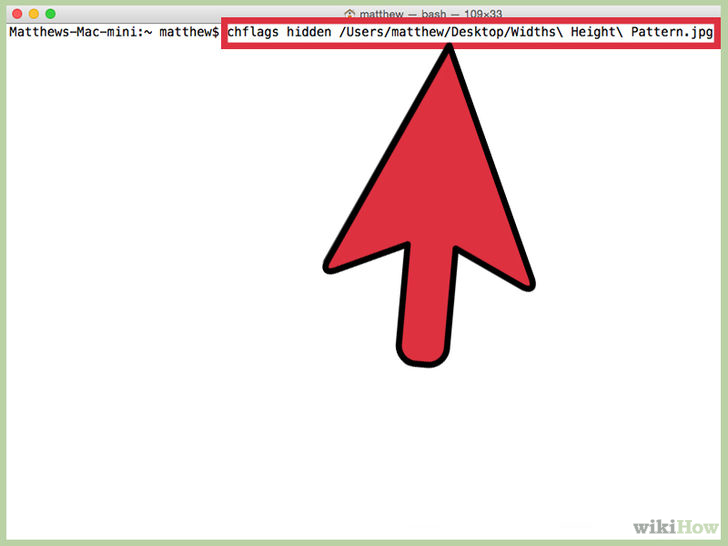
Open Terminal. Enter the command line: chflags hidden then drag the file or folder you want to hide into the Terminal window. Now the path of the file or folder will automatically be pasted. You press Enter to hide those files and folders.
Step 2: Show hidden files and folders
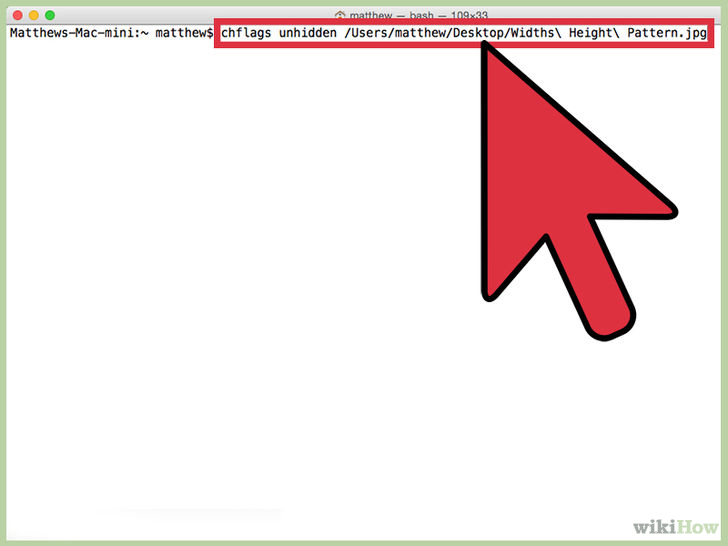
If you want to show the files and folders that you have hidden, type the command: chflags unhidden and then add the path of that file and folder to Terminal.
Step 3: Show all hidden files
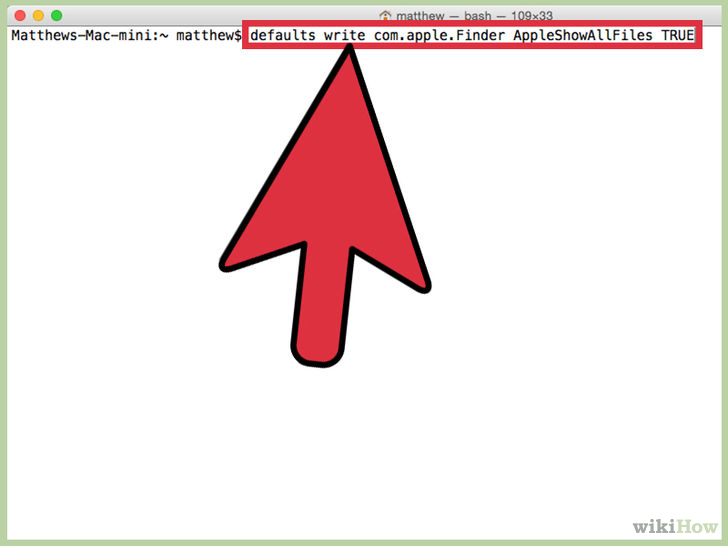
To show all hidden files on the Finder, open Terminal and then enter the following command: defaults write com.apple.Finder AppleShowAllFiles TRUE into the Terminal window.
If you want to hide all these files, you change the word TRUE in the above line to FALSE: defaults write com.apple. Finder AppleShowAllFiles FALSE into the Terminal window.
In addition, you can create a folder or an invisible file (invisible) on Mac or Linux by adding a "." in front of the folder name or file name. Then on the Terminal window enter the command line mv sample.txt .sample.txt .
3. On Linux
Step 1:

Find the file or folder you want to hide
Step 2: Rename the file or folder
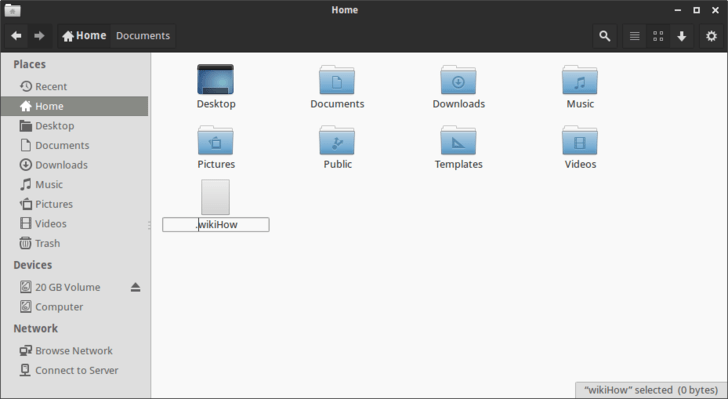
Right-click the file or folder you want to hide then add a "." in front of the file name, folder.
For example, English you change to .English, wikiHow to .wikiHow .
Step 3: Show hidden files
To show the hidden files, find the file path then press Ctrl + H. Then rename the files by removing the dot before the file name.
4. On MS-DOS
Step 1:
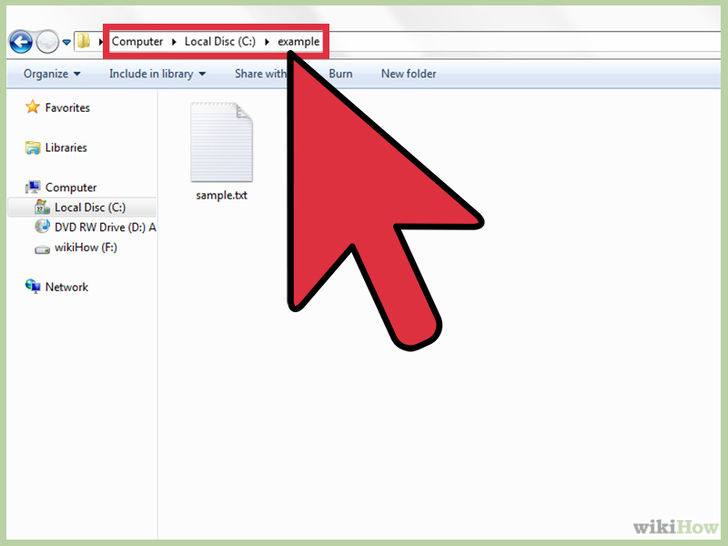
Find the path or file you want to hide.
Step 2: Change the attribute command
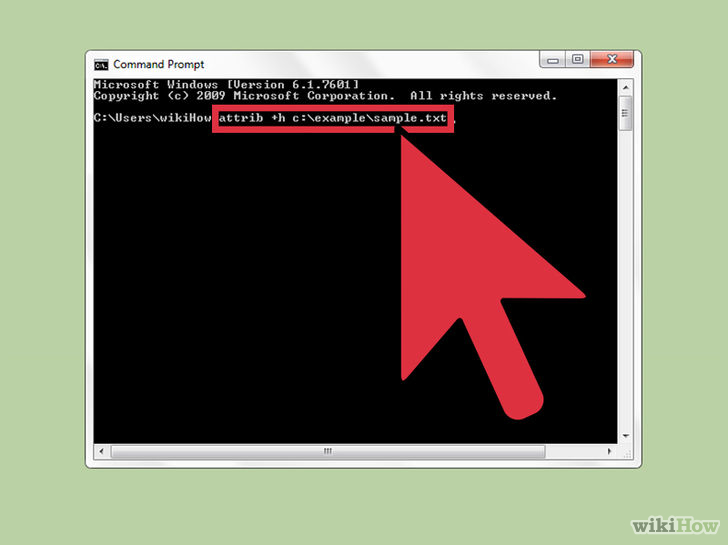
Enter the command line: attrib -h the directory path , the file you want to hide in the Command Prompt window to hide files and folders.
In the illustrated example is attrib -hc: examplesample.txt.
Note: You must enter the full path to the file or folder you want to hide in the Command Prompt window.
To show hidden files, enter the command line a ttrib + h directory path, the file you want to show.
Example: attrib + hc: examplesample.txt.
You can refer to some of the following articles:
-
Simple way to convert PDF files to Word
-
How to reopen Word, Excel or PowerPoint files when closed but not saved yet?
-
Instructions for transferring PDF files to Word are free of Vietnamese errors
Good luck!